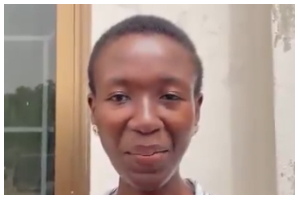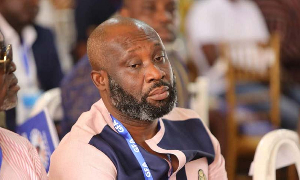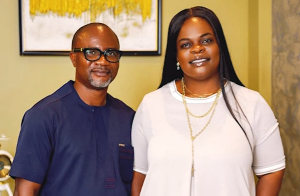By Kwame Okoampa-Ahoofe, Jr., Ph.D.
The story of a beheaded Ghanaian king of the nineteenth century soaked in formaldehyde in a medical laboratory at the University of Leiden, naturally, set my teeth on edge (see “Ghana Wants Dutch to Return Chief’s Head” Ghanaweb.com 10/30/08). The story also filled me with deep anger, until I read further down that the decapitated king, by the name of Nana Badu Bonsu II, had been killed by a Dutch general, because Nana Badu Bonsu had committed the quite unpardonable crime of executing two Dutch emissaries, whose heads the Ghanaian king had hung in his palace as a trophy.
According to the Ghanaweb.com report, the preserved head of Nana Badu Bonsu, of Akan-Asante descent, had been discovered by a prominent Dutch writer by the name of Arthur Japin during the course of a research project the writer undertook for the composition of a historical novel. Nana Badu Bonsu’s head, we are told, ended up in the Leiden University Medical Laboratoty at the express request of a craniologist who, it seems, wanted to prove whether the indigenous African was, indeed, of equal humanity with the Western European during the 1830s. It had probably been kept by Maj.-Gen. Jan Verveer, the butcher of Nana Badu Bonsu, in Amsterdam prior to its transfer to Leiden.
What is disturbing about this story is not the reported demand by the Kufuor government that the head of Nana Badu Bonsu be returned to the dead king’s homeland for burial, but the apparently naïve acceptance of the Dutch version of the manner in which the king met his demise at the hands of Maj.-Gen. Jan Verveer, who had absolutely no business venturing into the Asante heartland on the patently ungodly mission of catching potential slaves and soldiers for recruitment into Dutch colonial service in present-day India and its environs.
In other words, while his alleged murder of the two Dutch messengers may not be, in any way, excusable, nonetheless, what the Ghanaian government ought to be demanding to know is precisely what provoked Nana Badu Bonsu into causing the slaying of the two Dutch emissaries who, by the way, may not have been mere official messengers at all but, in all likelihood, spies dispatched by the Dutch trading company in Accra to case up the region in order to facilitate the launching of a bloody onslaught for purposes of both enslaving Nana Badu Bonsu and his subjects. If the preceding observation has any iota of veracity, or plausibility, then what the Government of Ghana ought to be discussing with its Dutch counterpart is reasonable compensation for the humiliation, pain and suffering brought to bear on Nana Badu Bonsu and his people and the Ghanaian nation at large.
Short of any of the foregoing considerations, merely demanding the decapitated head of the late Asante monarch is bound to rake otherwise long-forgotten and callused wounds of a proud people who have come to accept our collective destiny in the postcolonial dispensation. And while we may, indeed, irk at the continuous preservation of the head of one of our apparently brave and courageous ancestral protectors in the specimen-display case of a Dutch academy, nevertheless, our utmost priority ought not to revolve around the mytho-religious doctrine of whether our failure to inter the “formaldehyded” head of Nana Badu Bonsu would cause the spirit of the late king to be hunted in the afterlife or not. For, after all, by what means do we ascertain the fact of whether the king’s “formaldehyded” head is apt to be acceptable to the reigning forces of the afterlife?
In sum, it appears that Dutch scientists and pseudo-scientists found the proverbially handsome head of one Asante king and could not resist the glorious temptation of having it for a keepsake. This is, in no way, to pooh-pooh the quite noble gesture of having the severed head of Nana Badu Bonsu returned home for a fitting and proper burial. I simply do not fancy the quaint and irredeemably primitive idea of conducting a lavish funeral, perhaps even a state funeral and burial, over the culturally contaminated and “formaldehyded” noggins of a monarch who has been dead for at least 170 years, and thus already a firmly established denizen of the afterlife and his ancestral home. If, on the other hand, the Royal Dutch Government is willing to pay for the belated funeral of Nana Badu Bonsu – Mr. Arthur Japin and his Dutch kin must, by now, be fully in the know about our proverbial soft spot for funerals, even the funerals of relatives dead for two centuries – then, by all means, let us celebrate the apparently courageous and glorious life of Nana Badu Bonsu.
I have absolutely no doubt about the ability, and even the willingness of the putatively kindly-hearted Dutch people and their government in paying for the lavish state burial of Nana Badu Bonsu’s head. After all, was it not the Dutch government, through its embassy in Accra, that single-handedly undertook the launching of our salutary and auspicious School-Feeding program? Indeed, it was the latter reason that almost immediately prompted me to snuff out the initial fury with which I reacted to the Badu Bonsu story. I first heard the story several years ago but promptly decided to let bygones be bygones; more so, in view of the many laudable services rendered the Ghanaian people by the Dutch people and their government. It is also the latter reason that made me harbor mixed feelings towards the Afrikaner tribes of South Africa for quite awhile.
Indeed, the Badu Bonsu story also ought to direct the attention of Ghanaian historians and scholars towards the Indian subcontinent and its neighboring states, in the wake of our being informed about the fact of Dutch traders in pre-colonial and colonial Ghana having recruited potential soldiers and slaves for action and service in the East Indies.
Some 14 years ago, I met a Pakistani woman by the name of Dr. Robina Bhatti, who lived and taught college in the California area. A political scientist, Dr. Bhatti drew attention to the existence of sizeable colonies of continental African indigenes on the Indian subcontinent, and its contiguous regions, who eagerly desired to forge cultural and familial links with those of us still firmly rooted at home. It was during one of those periodic Pan-Africanist confabulations at Pennsylvania State University at College Park. To my surprise, however, Dr. Bhatti’s call was greeted with general insouciance and outright apathy.
*Kwame Okoampa-Ahoofe, Jr., Ph.D., is Associate Professor of English, Journalism and Creative Writing at Nassau Community College of the State University of New York, Garden City. He is the author of 18 books, including “Dr. J. B. Danquah: Architect of Modern Ghana” (iUniverse.com, 2005) and “Ghanaian Politics Today” (Atumpan Publications/lulu.com, 2008). E-mail: okoampaahoofe@aol.com.














